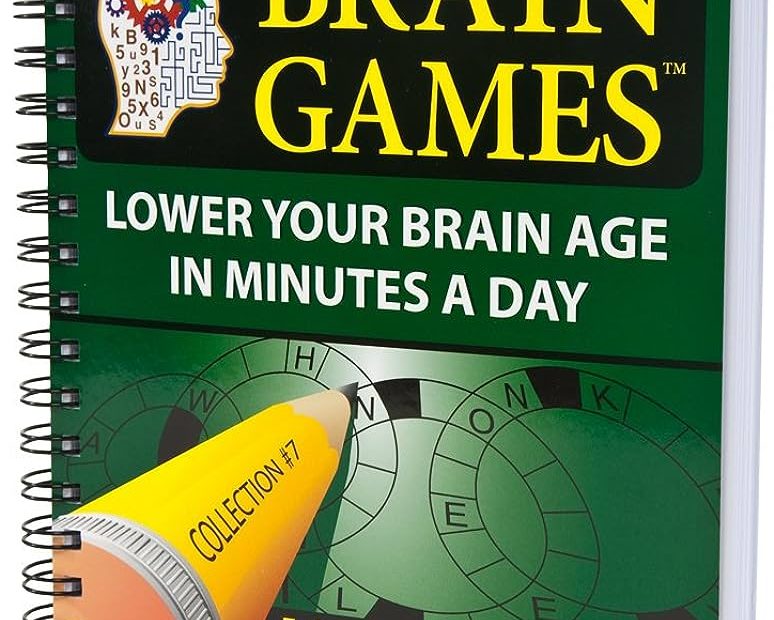In this article, we will explore how brain games can help enhance creativity. We will discuss the importance of creativity in various aspects of life and how brain games can stimulate and exercise your brain to unlock your creative potential. We will also explore the different types of brain games available and provide tips on how to incorporate them into your daily routine. By the end of this article, you will have a better understanding of how brain games can contribute to your overall creativity and how to use them to your advantage.
Enhancing Creativity Through Brain Games
Creativity is a valuable skill that can greatly benefit various aspects of our lives, from problem-solving to innovation. While creativity may be considered an innate talent for some, it is also a skill that can be developed and enhanced. One effective tool for boosting creativity is through the use of brain games. Brain games are engaging activities that stimulate mental processes and challenge cognitive abilities. They are designed to improve cognitive skills, enhance problem-solving abilities, and promote memory and focus. In this article, we will explore the link between brain games and creativity, specific brain games that can boost creativity, how to incorporate brain games into your daily life, and the potential benefits and limitations of brain games for creativity.
Defining Brain Games
Brain games encompass a wide range of activities that aim to exercise and stimulate various cognitive functions. They are specifically designed to target and challenge specific mental processes, such as memory, attention, problem-solving, and creativity. These games go beyond mere entertainment and serve as a means to actively engage and train our brains, much like physical exercise for the body.
Types of Brain Games
There are numerous types of brain games available, each targeting different cognitive functions. Puzzle games, such as crosswords and Sudoku, challenge problem-solving skills and logic. Word association games, like Scrabble and word puzzles, enhance language proficiency and creativity. Visual perception games, such as jigsaw puzzles and spot-the-difference, develop visual-spatial skills and attention to detail. These are just a few examples of the wide array of brain games available, catering to various cognitive abilities and preferences.

Benefits of Brain Games
Brain games offer numerous benefits beyond their potential to enhance creativity. By regularly engaging in brain games, you can improve your cognitive skills, such as memory, attention, and processing speed. These games also foster problem-solving abilities, as they challenge you to think critically and develop effective strategies. Additionally, brain games can boost memory and focus, enabling you to better retain and retrieve information. Overall, brain games provide an enjoyable and effective means to sharpen your mental capabilities.
The Link between Brain Games and Creativity
Creativity, often described as the ability to generate novel ideas and approaches, is closely linked to cognitive processes such as problem-solving, divergent thinking, and associative thinking. Understanding the science behind brain games can help us grasp their potential in enhancing creativity.
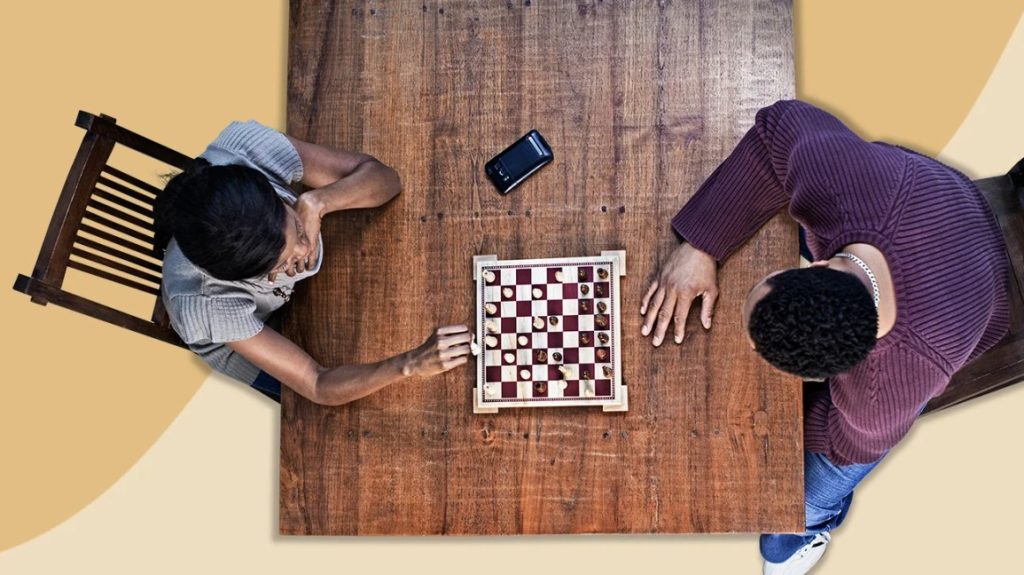
Understanding Creativity
Creativity is a multidimensional concept that involves various cognitive processes. It encompasses not only originality and novelty but also valuable and relevant ideas. Divergent thinking, the ability to think outside the box and generate multiple solutions, is a key component of creativity. Associative thinking, the ability to connect seemingly unrelated ideas or concepts, is also crucial for creative thinking. These cognitive processes can be developed and strengthened through brain games.
The Science Behind Brain Games
Brain games work by stimulating specific brain regions and neural networks involved in various cognitive functions. As you engage in brain games, you activate these regions, leading to increased neural connections and improved communication between brain cells. This process, known as neuroplasticity, allows your brain to adapt and reorganize itself, leading to enhanced cognitive abilities. Brain games specifically designed to target creativity can foster the development of neural networks associated with divergent thinking and associative thinking.
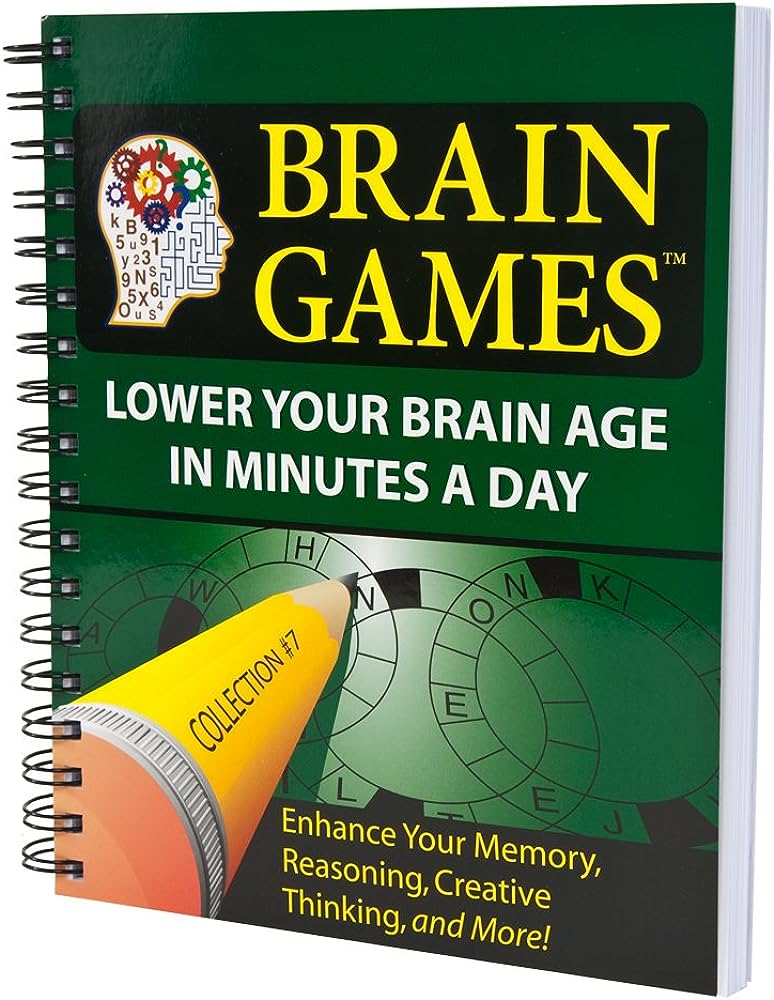
How Brain Games Enhance Creativity
Brain games serve as a mental workout, challenging you to approach problems from different angles and think creatively. By engaging in brain games regularly, you expose yourself to a variety of mental stimuli and problem-solving scenarios, which encourages creative thinking in other areas of your life. Brain games also improve cognitive flexibility, enabling you to see connections and relationships between ideas that were previously unrecognized. This enhanced cognitive flexibility leads to more innovative and creative thinking. Moreover, brain games promote a positive mindset, as they provide a sense of accomplishment and reward when solving challenging puzzles or achieving high scores. This positive mindset further enhances creativity by fostering a relaxed and open mental state conducive to generating novel ideas.
Specific Brain Games to Boost Creativity
There are several brain games that have been found to specifically enhance creativity. Puzzle games, such as Rubik’s Cube or challenging online puzzles, require you to think critically and find unique solutions. These games encourage you to approach problems from different angles and experiment with various strategies. Word association games, such as Scattergories or wordstorming exercises, stimulate divergent thinking and help you make innovative connections between words and ideas. Visual perception games, like drawing exercises, jigsaw puzzles, or spot-the-difference games, train your brain to perceive visual details, notice patterns, and think creatively.
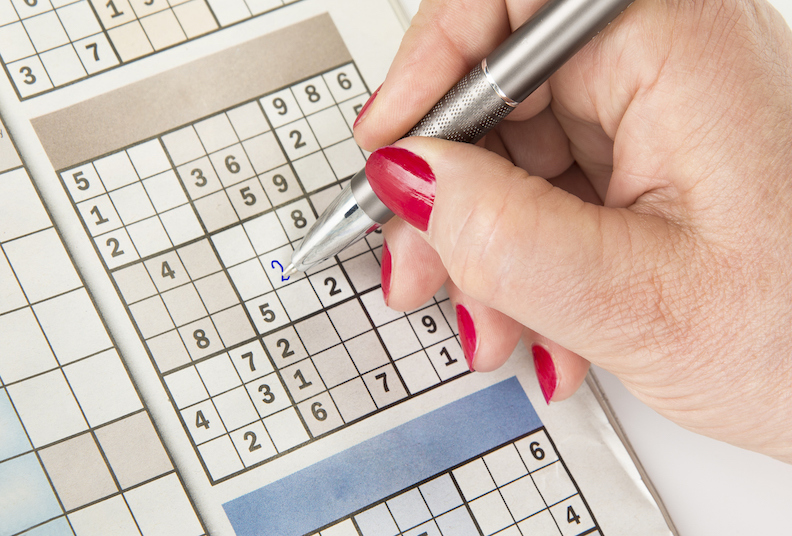
How to Incorporate Brain Games into Your Daily Life
Incorporating brain games into your daily routine can greatly contribute to enhancing your creativity. Here are some suggestions on how to do so:
Creating a Brain Games Routine
Set aside dedicated time each day to engage in brain games. This can be in the form of a structured schedule or as short breaks throughout the day. Make it a habit to challenge your brain regularly, just like you would engage in physical exercise. Choose games that target specific cognitive skills and alternate between different types of brain games to keep your brain stimulated.
Incorporating Brain Games into Work or Study
Integrate brain games into your work or study routine to boost creativity and problem-solving abilities. For example, during brainstorming sessions, engage in word association games to generate unique ideas. Use puzzle games as a warm-up activity before diving into complex tasks to prime your brain for creative thinking. By incorporating brain games into your daily work or study routine, you can foster a more creative and innovative approach to your tasks.
Making Brain Games a Social Activity
Brain games can also be a fun and engaging social activity. Gather friends, family, or colleagues and organize brain game nights or competitions. Playing brain games together not only stimulates creativity but also promotes teamwork and collaboration. By sharing different perspectives and ideas, you can further enhance the creative potential of brain games.
Benefits Beyond Creativity
While enhancing creativity is a significant benefit of brain games, there are also other advantages worth considering.
Improving Cognitive Skills
Regular engagement in brain games improves cognitive skills such as memory, attention, and processing speed. These enhanced cognitive abilities can have a positive impact on various areas of your life, including work, academics, and daily tasks.
Enhancing Problem-Solving Abilities
Brain games require you to think critically and develop effective strategies to solve complex problems. By practicing problem-solving through brain games, you can transfer these skills to real-life situations, improving your ability to overcome challenges and find innovative solutions.
Enhancing Memory and Focus
Brain games challenge your memory and attention, leading to improved memory retention and focus. These benefits can be particularly useful when it comes to academic or professional endeavors that require concentration and information recall.
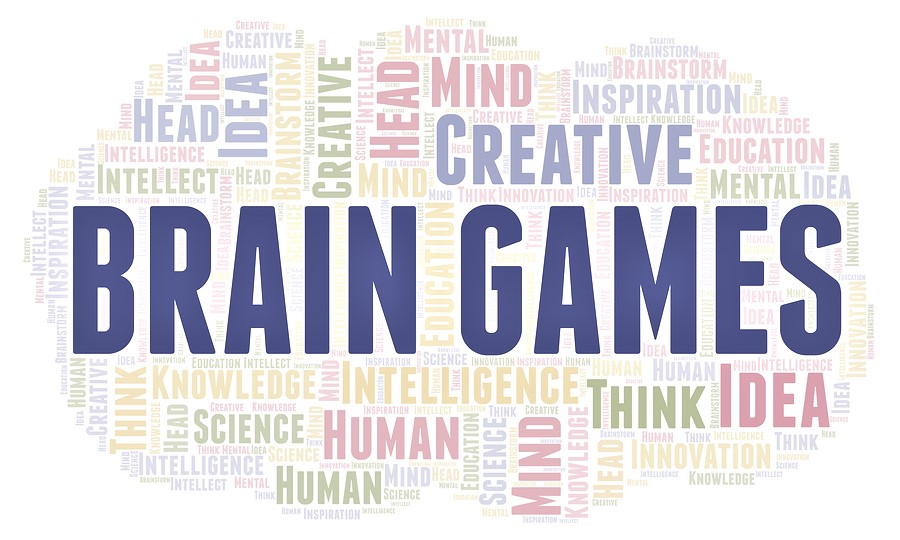
Potential Challenges and Limitations of Brain Games for Creativity
While brain games have numerous benefits for enhancing creativity, it is important to be aware of potential challenges and limitations.
Overdependence on Brain Games
While brain games can enhance creativity, relying solely on them may limit your exposure to other sources of inspiration and ideas. It is crucial to balance brain games with other activities that promote creative thinking, such as reading, engaging with nature, or exploring new hobbies.
Potential Lack of Transferability
While brain games can improve creative thinking skills, their direct transferability to real-life creative endeavors may vary. It is essential to apply the skills developed through brain games in various contexts to fully utilize their creative potential.
Balancing Brain Games with Other Activities
Although brain games are beneficial, it is important to incorporate them into a well-rounded lifestyle that includes physical exercise, social interactions, and sufficient rest. Balancing brain games with other activities ensures overall brain health and prevents burnout or overstimulation.
Tips for Getting the Most Out of Brain Games
To maximize the benefits of brain games for creativity, consider the following tips:
Challenge Yourself with Different Levels
Select brain games that push your cognitive limits and offer various difficulty levels. By challenging yourself with progressively harder levels, you can continuously improve your cognitive abilities and enhance your creative thinking.
Stay Consistent and Regular
Make brain games a regular part of your routine. Consistency is key when it comes to improving cognitive skills and fostering creativity. Set aside dedicated time every day or week to engage in brain games and stick to it.
Reflect on your Progress and Growth
Regularly reflect on your progress and growth as you engage in brain games. Notice how your problem-solving abilities improve, how you generate more unique ideas, and how your overall creativity expands. Reflecting on your progress can provide motivation and further enhance your creative potential.
Professional and Educational Applications of Brain Games
The benefits of brain games extend beyond personal growth. Brain games can also be incorporated into professional and educational settings to foster creativity and enhance learning.
Incorporating Brain Games in Schools
Educators can use brain games as a tool to develop critical and creative thinking skills in students. By incorporating brain games into lesson plans, teachers can engage students in interactive, hands-on activities that promote problem-solving and innovative thinking.
Brain Games in Workplace Training
Organizations can utilize brain games as a part of employee training programs. By including brain games in training sessions, companies can enhance creative thinking, teamwork, and problem-solving abilities among their employees. This can lead to a more innovative and productive work environment.
Therapeutic Applications of Brain Games
Brain games can also have therapeutic applications. In rehabilitation settings, brain games can aid in cognitive recovery and improve problem-solving skills. They can also be used as a component of therapy for individuals with cognitive impairments or neurological disorders.
Success Stories of Creativity Enhanced through Brain Games
Numerous individuals have reported significant improvements in their creativity through regular engagement in brain games. Here are a few success stories:
Case Studies of Individuals
John, a software developer, noticed a significant boost in his creative problem-solving abilities after incorporating brain games into his daily routine. He found that engaging in puzzle and word association games helped him approach coding challenges from different angles and generate innovative solutions.
Stories of Creative Breakthroughs
Sarah, an aspiring writer, experienced a creative breakthrough in her writing after regularly playing visual perception games. These games helped enhance her attention to detail and visualization skills, resulting in more vivid and descriptive writing.
Testimonials from Brain Game Users
Many users have shared their positive experiences with brain games, highlighting improvements in creativity and cognitive abilities. They credit brain games with helping them think outside the box, spark new ideas, and overcome mental blocks.
Conclusion
Brain games offer a valuable means to enhance creativity by stimulating cognitive processes, promoting neural connections, and providing a platform for practicing creative thinking. They not only improve cognitive skills but also foster problem-solving abilities, enhance memory and focus, and have numerous other benefits. By incorporating brain games into your daily routine, you can sharpen your mental capabilities and unlock your creative potential. So why wait? Start incorporating brain games into your life and embark on a journey of enhanced creativity and personal growth.
